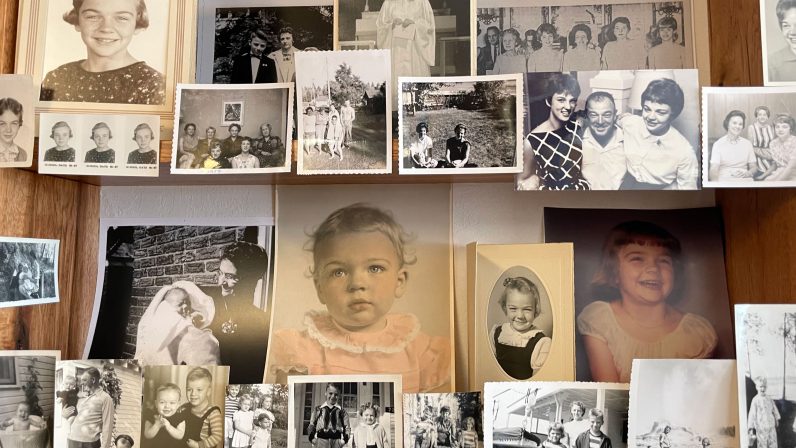Over the weekend I traveled to Cheney, Washington, for my friend Elaine’s celebration of life. I was invited to join her family at their lake home for a Saturday afternoon gathering in her honor. Their house felt like a shrine to Elaine Surbeck, with photos of every stage of her life filling walls and shelves. There was an overabundance of love and loss.
Elaine was my friend since the late 1980s. Although we had a 25 year break in our friendship, we reconnected in 2018 and remained steady friends until her death this past August. Elaine was more than a friend. She was a mentor and colleague in the field of early childhood education, having spent 28 years at Arizona State University’s College of Education. Elaine taught both undergraduate and graduate students, and was instrumental in establishing an Arizona teacher certification for early childhood educators. Later, she served as Associate Dean for Teacher Education, and was active in professional associations for early childhood education, both in the United States and internationally.
I first met Elaine when she came to my class to conduct research as a university professor. Later we co-taught an early childhood class at ASU and served as educational consultants together, which was a positive experience for both of us. My extensive classroom experience with young children blended well with her vast knowledge of educational theory. We both resonated with the constructivist approach to learning, which rests on the notion that children learn best when they can construct their own meaning and understanding through interacting with a range of materials. In 1992 Elaine and I co-authored an article for Childhood Education called “Seal Revenge: Ecology Games Invented by Children.” The article chronicled a project in my second grade class where students worked in teams to create their own invented games. She helped me see my classroom work through scholarly eyes, and I, in turn, gave her a steady source of real life examples to use in her college courses. Elaine deeply loved young children and was passionate about making sure their teachers were well trained. She was intensely committed to supporting policies and practices that would enhance the lives of children. Elaine was a huge fan of our work at the Seed. Her influence on my thinking as a teacher years ago is still visible in our classrooms. Every time I witness an emerging study or see a child proudly carrying home a Friday project made of paper towel tubes, tape, and cardboard, I think of Elaine.
By the time we reconnected in 2018, she had retired from ASU, but her curiosity for life and learning continued to be strong. We often walked together and talked about our parallel experiences as cancer survivors, our families, spirituality, school, friendships, and poetry. When she was in the hospital toward the end of her life, Elaine said she wanted to be remembered as being joyful and kind, and as someone who loved others. I am honored to have been one of the people she loved and I know I’m a better person having received the joy and kindness she generously shared.
During these past four years of conversation with Elaine, one of the poets we talked about was David Whyte. She loved his work. At her celebration of life, I read his poem, “Sweet Darkness.” The last few lines specifically describe how I felt about my experience with her: “anything or anyone/that does not bring you alive/is too small for you.” In many ways, I believe this world became too small for Elaine’s expression of humanity. One thing I know, everyone whose life touched hers has grown larger and more alive. Her influence on the Seed will continue to flourish through generations to come.

